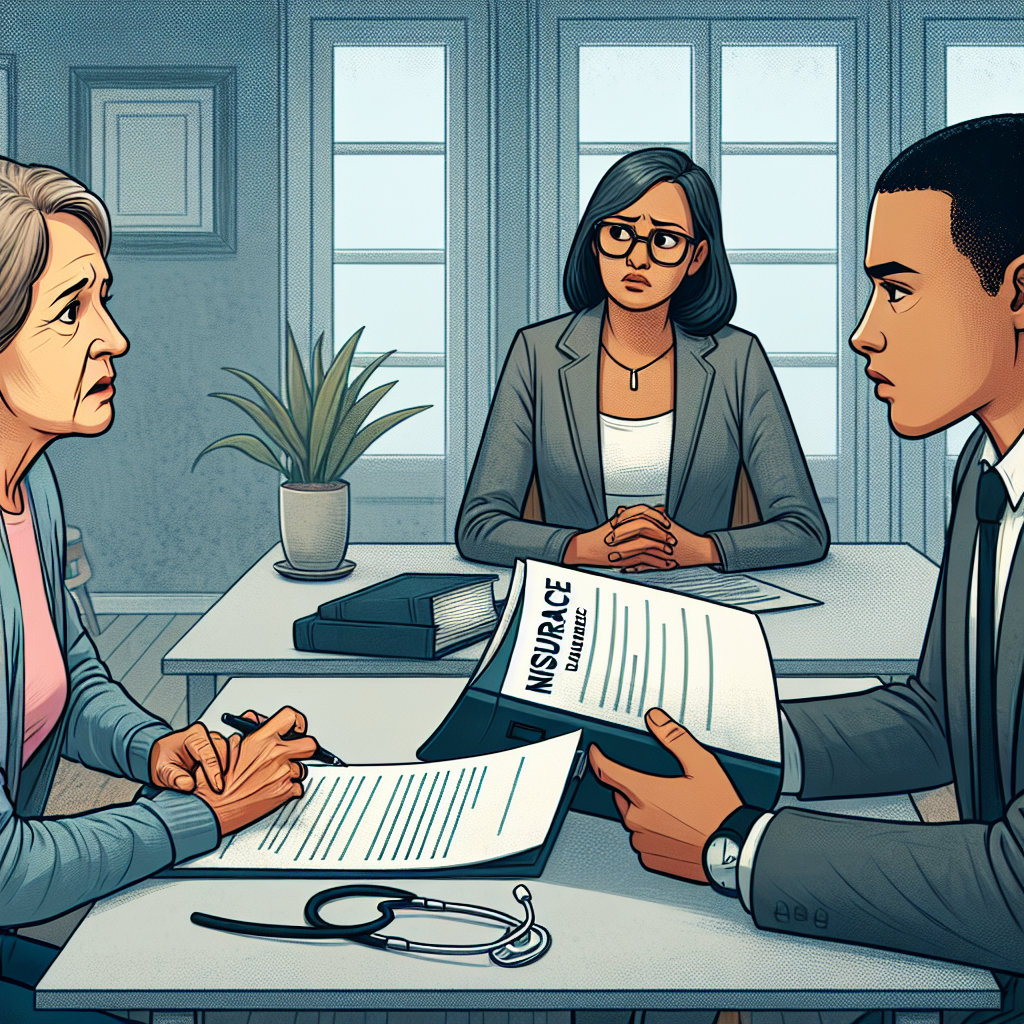Filed under Health Insurance on
Can You Sue Health Insurance for Denying Coverage?

When it comes to healthcare, the intricacies of insurance policies can leave individuals feeling overwhelmed and uncertain. For many, the harshest reality strikes when a health insurance company denies coverage for a treatment or procedure deemed medically necessary by a healthcare provider. This situation often raises the question: Can you sue health insurance for denying coverage? Navigating these murky waters requires knowledge, persistence, and sometimes legal intervention. This article will explore the potential avenues available to you if you've found yourself in this frustrating predicament.
Understanding Insurance Denials
Before delving into legal actions, it's essential to understand why health insurance companies deny coverage. Each policy is a contract detailing what is covered and what is not, typically based on medical necessity and cost-effectiveness. Common reasons for denial include:
- Pre-existing conditions: Historically a contentious issue, some policies might not cover treatments related to pre-existing health issues.
- Out-of-network providers: If you receive treatment from healthcare providers outside your insurance network, your insurer might deny the claim.
- Policy exclusions: Certain procedures or medications may be explicitly excluded in your policy.
- Lack of pre-authorization: Some treatments require prior authorization from the insurer, and lacking this can lead to rejection.
- Incorrect or incomplete paperwork: Errors in claim forms or missing documentation can result in denials.
Real-Life Example
Consider the case of Jane Doe, who underwent surgery for a rare medical condition. Although her doctor confirmed the necessity of the procedure, Jane's health insurance denied coverage stating it was experimental. After multiple appeals, her insurer continued to refuse payment. It was only through legal action that Jane was able to receive the compensation she deserved, illustrating the lengths one might have to go when insurance companies reject claims.
The Appeals Process
Before considering legal action, it’s crucial to exhaust all of the appeal mechanisms provided by your insurance policy. Most insurers have an internal review process allowing you to contest a denied claim. Here's a step-by-step guide on how to approach this:
- Review the Denial Letter: Carefully read your denial letter. It should outline the reason for denial and the steps for appeal.
- Gather Evidence: Collect all relevant documents, including doctor’s notes, medical records, and any correspondence with the insurance company.
- Submit a Written Appeal: Write a detailed appeal letter addressing the reasons for denial and providing evidence to counter these points.
- Request an External Review: If internal appeals fail, demand an external review conducted by an independent third party.
Practical Advice
During the appeals process, maintain detailed records of all communications, and be persistent. Sometimes resubmitting corrected paperwork or providing additional medical information can overturn a denial.
When to Consider Legal Action
If your internal and external appeals are unsuccessful, you may consider suing your health insurance company. However, this should be viewed as a last resort due to the time, cost, and emotional strain involved in litigation. Certain conditions must be met to have a valid legal action:
- Breach of Contract: Your lawsuit must demonstrate that the insurer violated the terms of the policy.
- Bad Faith: If you suspect that the insurer deliberately denied the claim without a proper investigation, you could sue for bad faith.
Case Study
In the case of Smith vs. Insurance Corp, Mr. Smith alleged that his insurer acted in bad faith by denying necessary surgery coverage. The court eventually ruled in his favor, awarding not only the cost of the surgery but also additional damages for emotional distress.
Steps to Take Before Filing a Lawsuit
When considering legal action, take the following steps to strengthen your case:
- Consult with an Attorney: Seek legal advice to evaluate the strength of your case and understand the implications of a lawsuit.
- Document Everything: Maintain a meticulous record of all communications with your health insurance company and gather comprehensive medical evidence.
- Calculate Your Damages: Accurately document the financial and emotional impact of the denial.
Practical Tips
Choose an attorney specializing in insurance law, and discuss all possible outcomes and costs involved in the legal proceedings. Be prepared for a potentially lengthy process and weigh the benefits against possible drawbacks, such as legal fees and emotional toll.
Conclusion
Suing your health insurance company for denying coverage can be a challenging path fraught with complexity. Before embarking on this journey, ensure that all avenues of appeal have been exhausted and that you have a strong case. While daunting, successful cases like that of Jane Doe and Mr. Smith demonstrate that justice can prevail when insurers wrongfully reject claims. Armed with persistence, legal counsel, and thorough preparation, you could secure the coverage you were unjustly denied.
FAQ
What should I do immediately after receiving a denial of coverage letter?
Begin by thoroughly reviewing the denial letter to understand the reasons for denial and the insurer's specified steps for appeal. Collect all necessary documentation and consider seeking advice from your healthcare provider or a legal expert to strengthen your appeal.
Can I still get my treatment if it’s denied by insurance?
You can opt to self-pay for the treatment, but this could be costly. Alternatively, some healthcare providers may offer financial assistance programs or explore alternative treatments covered under your plan.
How long does the appeal process usually take?
The duration of appeals varies based on the complexity of the claim, the insurer’s procedures, and whether an external review is requested. It can take from several weeks to several months.
What are my chances of winning a lawsuit against an insurance company?
Chances depend on the specifics of the case, such as evidence of bad faith or breach of contract, past precedent, and the quality of legal representation. Consulting with a lawyer can provide a more personalized assessment.
Are there any risks involved in pursuing legal action against an insurance company?
Legal action can be time-consuming, expensive, and emotionally taxing. There is also a risk of losing the case, which could result in no compensation and the burden of legal fees. Evaluate these risks carefully before proceeding.





